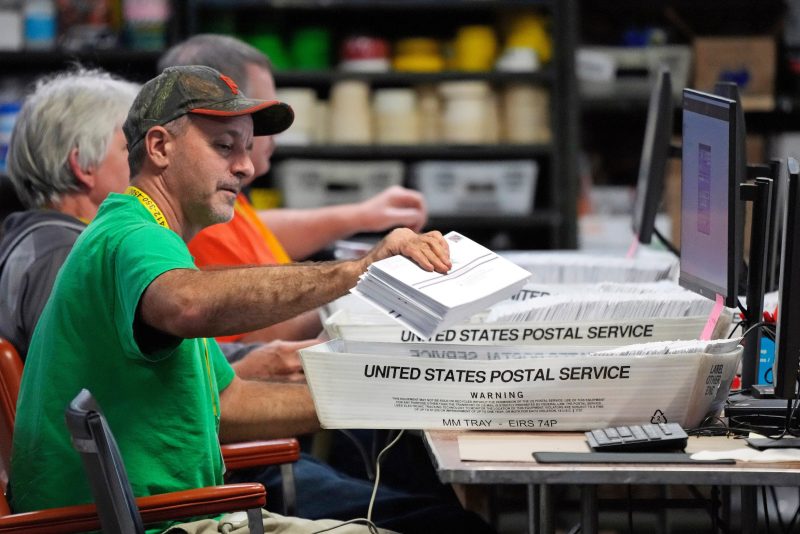
Backlash Grows as Republicans Target Overseas and Military Voting
Republicans Face Backlash for Lawsuits Targeting Overseas and Military Voting
The recent surge in lawsuits by Republican politicians targeting overseas and military voting rights has sparked a wave of criticism and backlash from various groups and individuals across the political spectrum. These lawsuits, primarily aimed at restricting or challenging the validity of ballots cast by military personnel and Americans living abroad, have raised concerns about disenfranchisement and undermining the democratic rights of these specific voting populations.
At the center of the controversy are lawsuits filed in multiple states seeking to invalidate or limit the use of certain voting mechanisms available to overseas and military voters. Republicans argue that these legal challenges are necessary to uphold the integrity of the voting process and prevent potential fraud. However, critics view these lawsuits as a thinly veiled attempt to suppress votes from demographic groups that traditionally lean towards the Democratic party.
One of the main points of contention in these lawsuits is the use of electronic ballots or faxed ballots by overseas and military voters. While these methods have been widely accepted and utilized by these voters in the past, Republicans have argued that they are susceptible to tampering and fraud. They have pushed for stricter requirements and deadlines for these ballots to be accepted, potentially disenfranchising a significant number of overseas and military voters who may face challenges in meeting these new criteria.
Furthermore, some of the lawsuits have targeted specific categories of overseas and military voters, such as those stationed in certain countries or regions. By questioning the legitimacy of these voters’ ballots, Republicans risk alienating a vital constituency that has historically played a crucial role in shaping election outcomes.
The backlash against these lawsuits has been swift and forceful. Advocacy groups, veterans organizations, and legal experts have condemned the attempts to restrict overseas and military voting rights, citing the sacrifices made by these individuals in service to their country and the importance of ensuring their voices are heard in the democratic process.
In response to the growing outrage, some Republican lawmakers have attempted to distance themselves from the lawsuits, claiming that they are solely aimed at safeguarding the integrity of the electoral system. However, the timing and nature of these legal challenges have raised suspicions about the underlying motives behind them.
As the legal battles over overseas and military voting rights continue to unfold, the stakes are high for both sides. Republicans face the risk of damaging their reputation among key voting demographics and being perceived as undermining the democratic principles they claim to uphold. Meanwhile, advocates for overseas and military voters are mobilizing to protect the rights of these individuals and ensure that their voices are not silenced in the upcoming elections.
Overall, the controversies surrounding these lawsuits highlight the broader tensions and challenges facing the American electoral system. The outcome of these legal battles will not only impact the voting rights of overseas and military voters but also have far-reaching implications for the integrity and fairness of the democratic process as a whole.